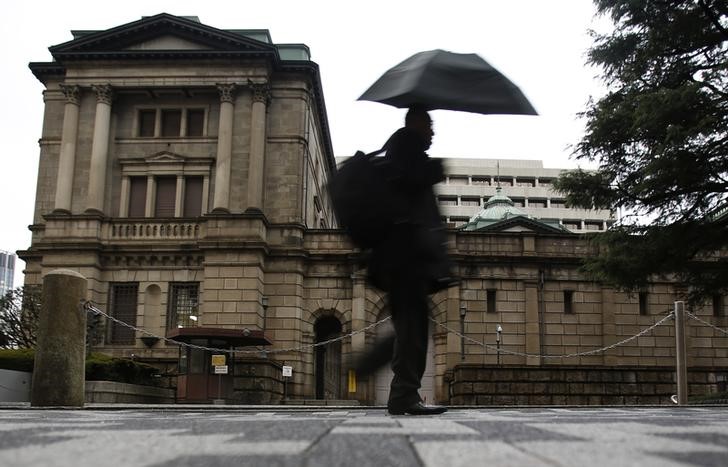By Tetsushi Kajimoto
TOKYO (Reuters) - Confidence at Japanese manufacturers slid for a second straight month and service companies soured in January, a Reuters poll showed on Tuesday, highlighting the fragility of economic recovery against a backdrop of rising global uncertainty.
The loss of confidence occurs at a time of renewed risk-aversion in global markets caused by falling crude oil prices amid worries over economic downturn in Europe, China, Russia and other emerging market economies.
The Reuters Tankan, which closely tracks the Bank of Japan's key tankan survey, showed manufacturers' mood bouncing over the next three months while service firms stayed flat, reflecting sluggish domestic demand.
The Reuters Tankan canvassed 483 big Japanese companies, of which 268 replied, between Jan 5-15.
"Only the U.S. economy is relatively firm while world economy on the whole remains sluggish," said a nonferrous metal maker. "Nonferrous metal prices are in a downtrend due to risk aversion caused by a sharp drop in crude oil prices. A weak yen is supportive, but recovery is slow in the real economy."
Transport equipment makers expressed concerns about weakening car sales at home as well as in Europe, China and Asia.
The managers, who responded anonymously to the Reuters survey, also complained about slack consumer demand after April's national sales tax hike-which pushed Japan back into recession-and higher import costs caused by a weak yen.
Falling oil prices are expected to bring windfall profits to resource-poor Japan, but they will also complicate the BOJ's aim of achieving a 2 percent inflation in the coming fiscal year, which investors see as impossible.
The BOJ is expected to cut its core consumer inflation forecast for the fiscal year starting on April 1 to 1.5 percent or lower at its Jan. 20-21 policy review, sources say, keeping it under pressure to expand an already huge stimulus programme.
The Reuters Tankan sentiment index for manufacturers fell to 9 in January from 10 in December, with oil refiners taking the hardest hit. Manufacturers expect a rebound to 13 in April.
The service-sector index fell to 20 from 23 in December, with wholesalers among those who suffered the most. The sentiment index is seen unchanged in the next three months.

The survey indices subtract the percentage of companies saying conditions are improving from that of companies saying conditions are worsening. A positive number means optimists outnumber pessimists.